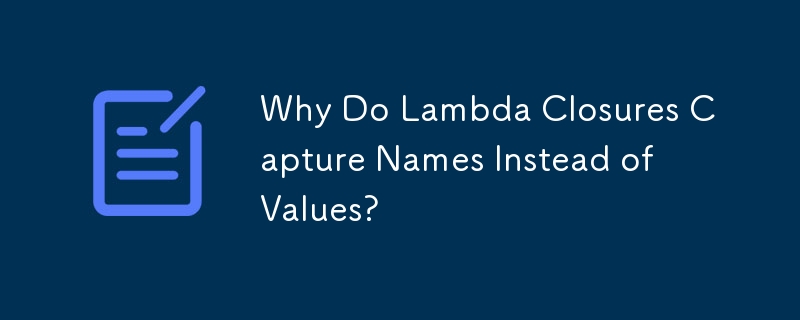

When attempting to use closures to remove a variable from a function's signature, you may encounter unexpected behavior. Specifically, a lambda function not enclosed within another function returns the last value of the variable for all instances.
To understand this behavior, it's crucial to recognize that closures capture names, not values. When you define a lambda as lambda x: test_fun(n, x), the n variable is not evaluated within the function but rather at the time of calling. Consequently, the value it assumes is the last value from the loop.
To effectively "eliminate" a variable using closures, the variable must be passed as an argument to the function. This assigns the current value of the variable to the function and effectively "locks it in." For example:
<code class="python">stuff = [lambda x: n+x for n in [1, 2, 3]] # Bad, captured value is last value stuff = [lambda x, n=n: n+x for n in [1, 2, 3]] # Good, n is locked in</code>
Alternatively, you can employ two nested functions:
<code class="python">def makeFunc(n):
return lambda x: x+n
stuff = [makeFunc(n) for n in [1, 2, 3]]</code>Here, the lambda within makeFunc captures the local n variable rather than the global one. Each makeFunc call creates a new local variable, ensuring that the returned lambda functions have unique n values.
Ultimately, the choice between simplicity and flexibility is yours. You can opt for simpler function creation with an extra argument in the returned function or cleaner functions with a more intricate function-creation process involving two nested functions.
The above is the detailed content of Why Do Lambda Closures Capture Names Instead of Values?. For more information, please follow other related articles on the PHP Chinese website!




